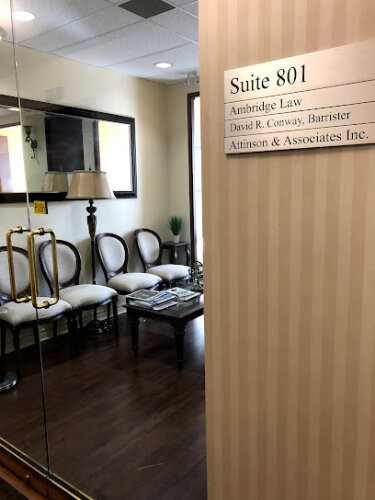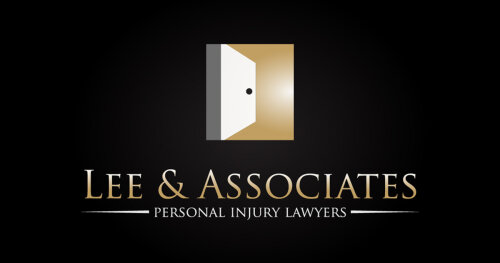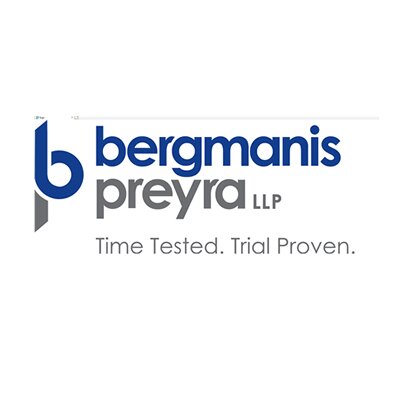Best Assault & Battery Lawyers in Toronto
Share your needs with us, get contacted by law firms.
Free. Takes 2 min.
List of the best lawyers in Toronto, Canada
About Assault & Battery Law in Toronto, Canada:
Assault & Battery refer to criminal offenses that involve causing physical harm or the threat of physical harm to another person in Toronto, Canada. Assault is the act of intentionally applying force to another person without their consent, while battery involves the actual physical contact. These offenses are taken very seriously by the legal system and can result in severe penalties.
Why You May Need a Lawyer:
You may need a lawyer in Assault & Battery cases in Toronto if you are facing charges, have been accused of committing the offense, or are seeking legal guidance on how to proceed with a case. A lawyer can help protect your rights, provide legal representation in court, negotiate on your behalf, and ensure that you receive a fair trial.
Local Laws Overview:
In Toronto, Canada, Assault & Battery are covered under the Criminal Code of Canada. The law distinguishes between different levels of assault based on factors such as the severity of the harm caused, the intent of the perpetrator, and the presence of any weapons. It is important to understand the specific charges you are facing and the potential consequences associated with them.
Frequently Asked Questions:
1. What is the difference between assault and battery?
Assault refers to the act of threatening or attempting to harm someone, while battery involves the actual physical contact and harm caused to another person.
2. What are the potential penalties for Assault & Battery in Toronto?
The penalties for Assault & Battery in Toronto can vary depending on the severity of the offense, the criminal history of the accused, and other circumstances. They can range from fines and probation to imprisonment.
3. Can I defend myself in court without a lawyer?
While you have the right to represent yourself in court, it is highly recommended to seek legal advice in Assault & Battery cases to ensure that your rights are protected and that you have the best possible defense.
4. How can I find a good lawyer for Assault & Battery cases in Toronto?
You can start by asking for recommendations from friends or family, researching online for reputable law firms that specialize in criminal defense, or contacting the Law Society of Ontario for referrals to qualified lawyers.
5. Is it possible to have Assault & Battery charges dropped or reduced?
It may be possible to have charges dropped or reduced through negotiations with the prosecution, presenting evidence in court, or demonstrating mitigating circumstances. A skilled lawyer can help explore these options.
6. What should I do if I have been a victim of Assault & Battery in Toronto?
If you have been a victim of Assault & Battery in Toronto, it is important to report the incident to the police, seek medical attention if needed, and consider contacting a lawyer to explore your options for seeking justice and compensation.
7. How long do Assault & Battery cases typically take to resolve in Toronto?
The duration of Assault & Battery cases in Toronto can vary depending on factors such as the complexity of the case, the court's schedule, and the legal strategies employed. It is advisable to consult with a lawyer for a more accurate timeline.
8. What defenses can be used in Assault & Battery cases in Toronto?
Common defenses in Assault & Battery cases in Toronto include self-defense, defense of others, lack of intent, consent, and mistaken identity. A lawyer can help determine the most appropriate defense strategy for your case.
9. What are the potential long-term consequences of a conviction for Assault & Battery in Toronto?
A conviction for Assault & Battery in Toronto can have serious long-term consequences, including a criminal record, difficulty finding employment, limitations on travel, and restrictions on certain rights and privileges.
10. Can I sue for damages in a civil lawsuit for Assault & Battery in Toronto?
Yes, it is possible to sue for damages in a civil lawsuit for Assault & Battery in Toronto. A lawyer can assess your case, determine if you have grounds for a civil lawsuit, and help you seek compensation for the harm you have suffered.
Additional Resources:
For more information on Assault & Battery in Toronto and legal resources, you can visit the Ontario Ministry of the Attorney General website, contact the Legal Aid Ontario services for assistance, or seek guidance from the Criminal Lawyers’ Association.
Next Steps:
If you are facing Assault & Battery charges, have been a victim of these offenses, or require legal advice in Toronto, it is crucial to seek the help of an experienced lawyer who specializes in criminal defense. Contact a reputable law firm, schedule a consultation, and take the necessary steps to protect your rights and obtain the best possible outcome in your case.
Lawzana helps you find the best lawyers and law firms in Toronto through a curated and pre-screened list of qualified legal professionals. Our platform offers rankings and detailed profiles of attorneys and law firms, allowing you to compare based on practice areas, including Assault & Battery, experience, and client feedback.
Each profile includes a description of the firm's areas of practice, client reviews, team members and partners, year of establishment, spoken languages, office locations, contact information, social media presence, and any published articles or resources. Most firms on our platform speak English and are experienced in both local and international legal matters.
Get a quote from top-rated law firms in Toronto, Canada — quickly, securely, and without unnecessary hassle.
Disclaimer:
The information provided on this page is for general informational purposes only and does not constitute legal advice. While we strive to ensure the accuracy and relevance of the content, legal information may change over time, and interpretations of the law can vary. You should always consult with a qualified legal professional for advice specific to your situation.
We disclaim all liability for actions taken or not taken based on the content of this page. If you believe any information is incorrect or outdated, please contact us, and we will review and update it where appropriate.














